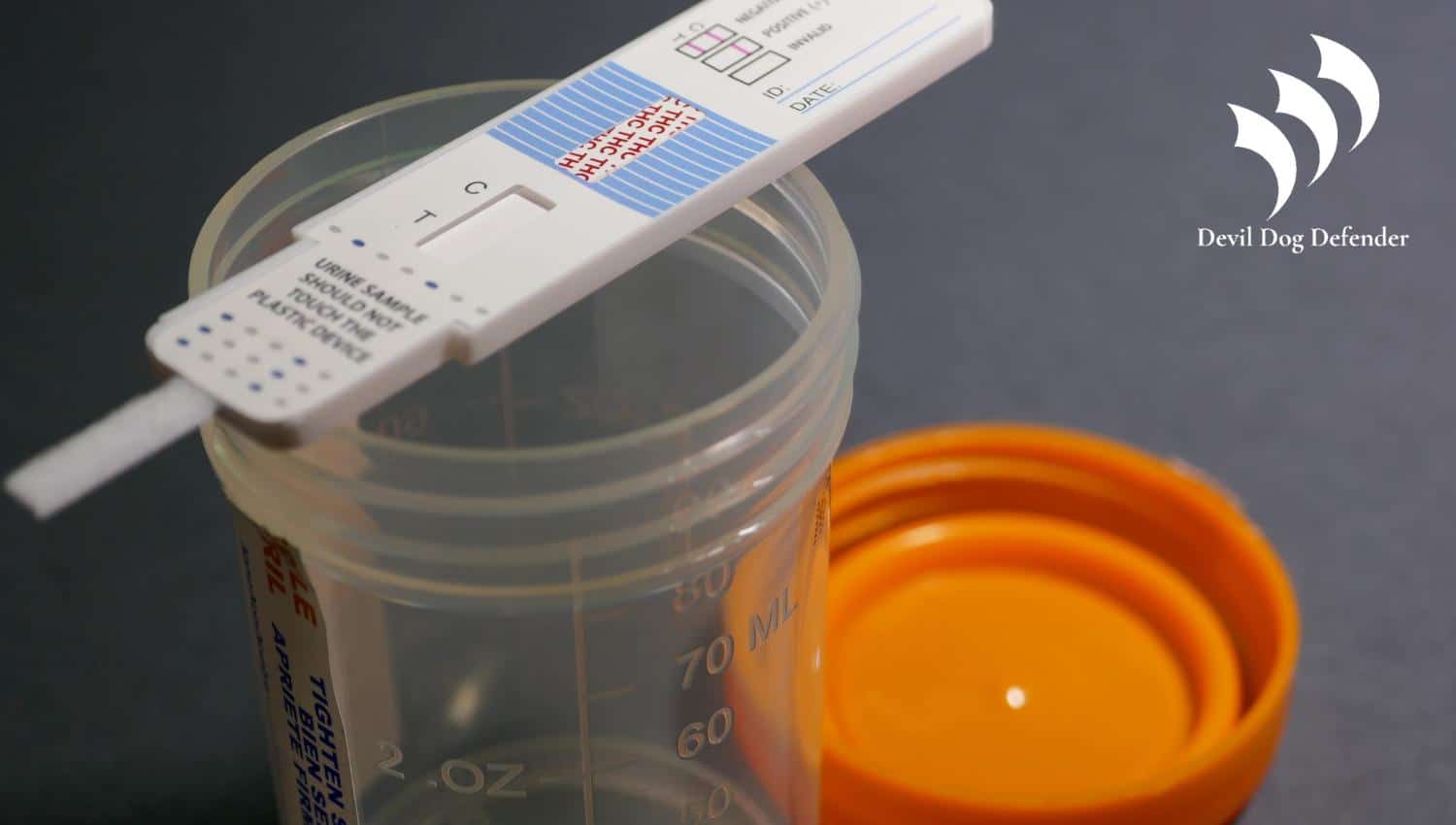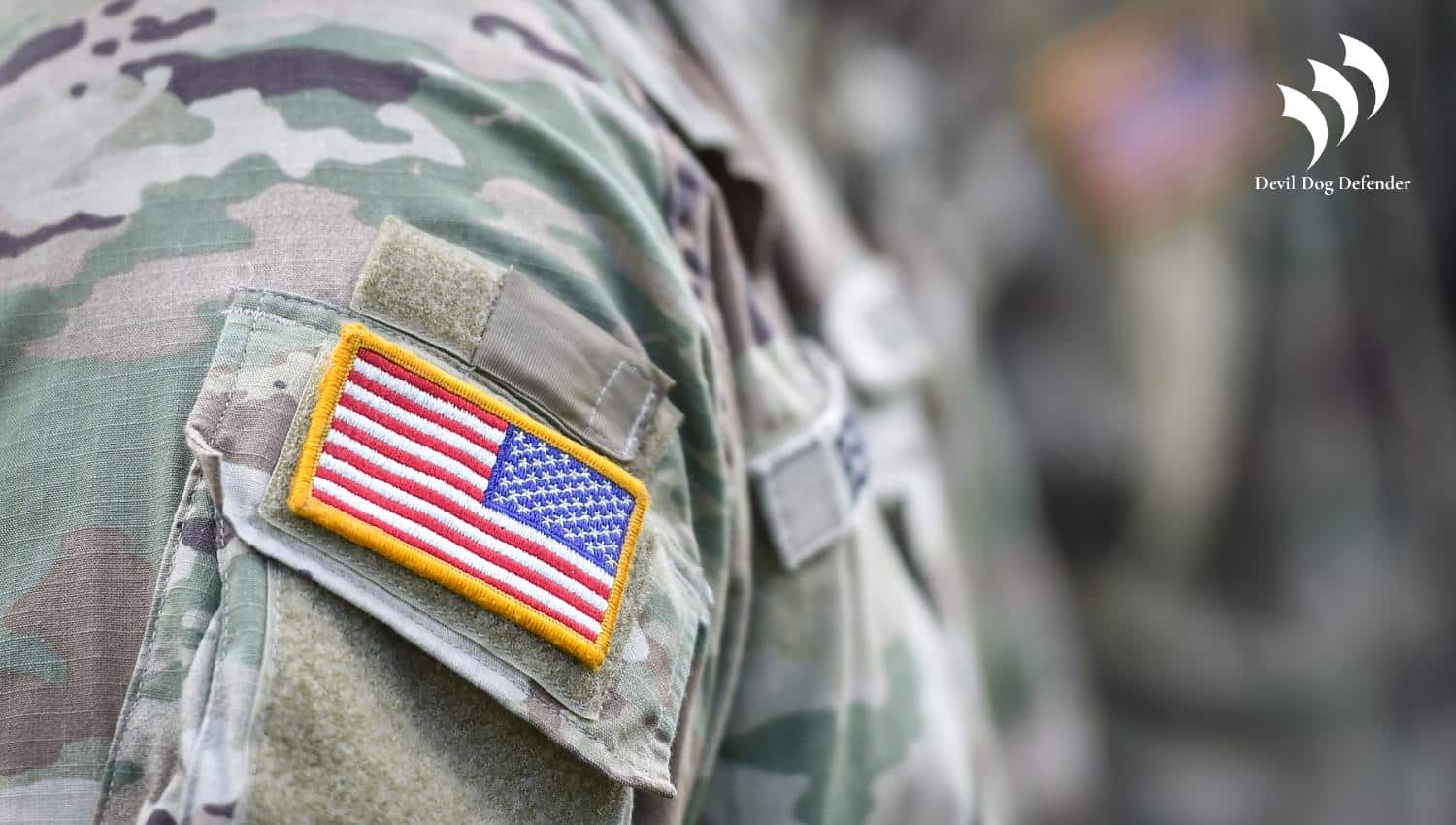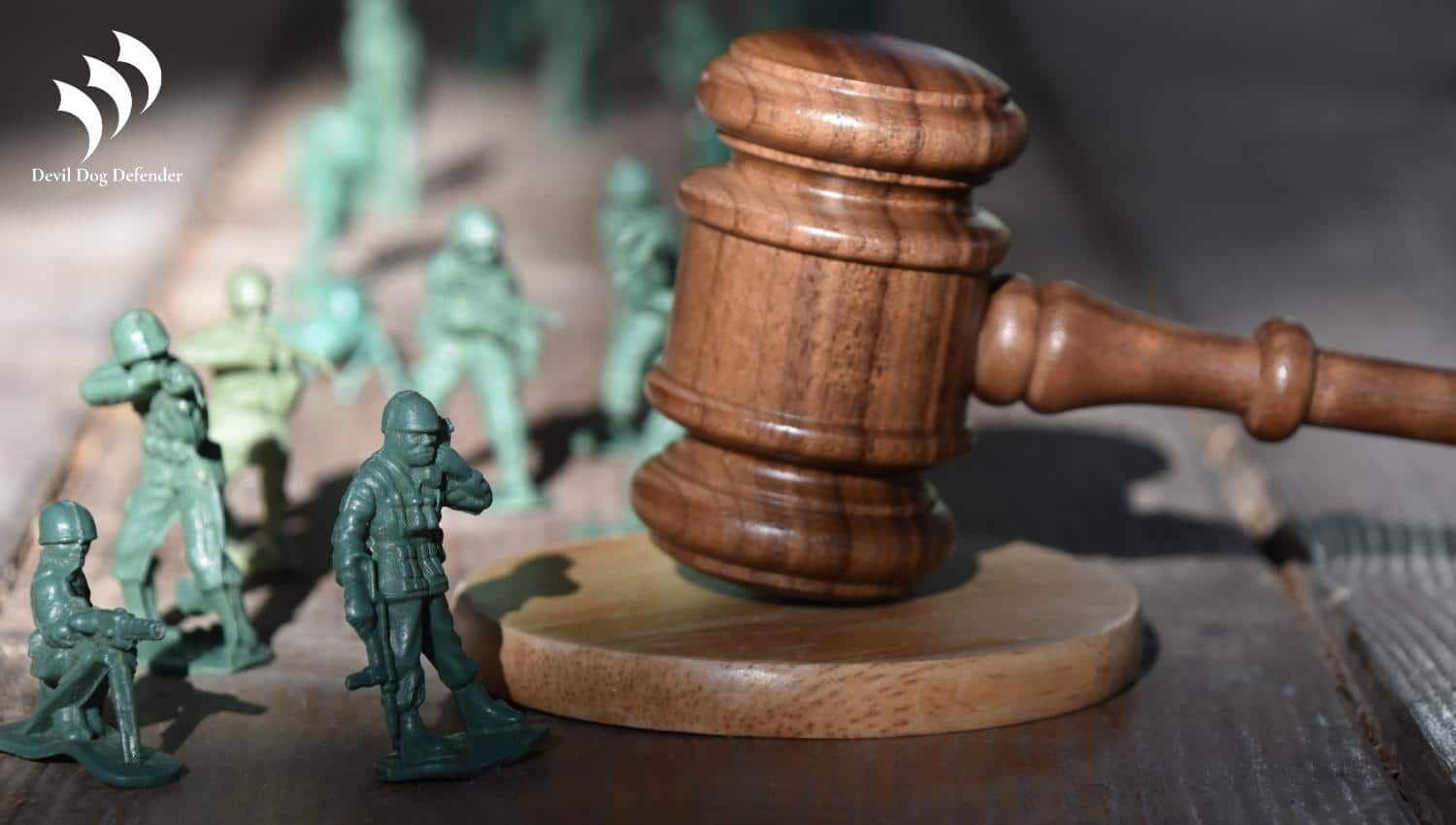Military Drug Test Defense Attorney
Drug Testing in the United States Military
Home » Military Drug Testing
Military Counsel
The U.S. Armed Forces maintains a strict zero-tolerance policy regarding drug use among its ranks. This policy underscores the importance of discipline and readiness, deeming any use of illicit drugs or controlled substances as completely unacceptable within military service. The repercussions of a failed drug test are severe and can include administrative discharge, loss of rank and benefits, and even criminal prosecution.
Experienced military defense attorney Aden Wilkie of the The Wilkie Law Group specializes in these high-stakes situations. With extensive experience in military law and a deep understanding of the challenges faced by service members accused of drug abuse, Aden Wilkie is prepared to put up an aggressive defense. Whether it’s a matter of a false positive test result, wrongful accusation, or other mitigating circumstances, our firm is equipped to challenge the evidence and advocate fiercely for our clients.

At The Wilkie Law Group, our goal is to protect the rights and military careers of those who have dedicated their lives to serving our country, ensuring that one misstep does not overshadow a lifetime of service. Whether you are in the Air Force, Navy, Marine Corps, Coast Guard, or Army, the civilian criminal defense lawyers at our firm are dedicated to fighting for you and everything you have worked for. To discuss your case in private, call (910) 333-9626 or reach out online to set up a confidential consultation today.
Military Drug Testing FAQs
How Often Do You Get Drug Tested in the Military?
In the military, drug testing is a routine and frequent practice for active duty members. The frequency of drug tests can vary, but service members can expect to be tested at least once a year.
Can the Military Drug Test You Without Warning?
Yes, the military can drug test service members without warning. This practice is commonly implemented through "random urinalysis," a key component of the military's approach to enforcing its zero-tolerance policy on drug use.
In addition to random drug testing, the military may also conduct drug tests based on probable cause. This means that if there is reasonable suspicion or evidence indicating that a service member may be using illicit substances, military drug tests can be mandated. Probable cause testing is typically based on specific indicators such as observed behavior, physical evidence, or information from reliable sources.
What Type of Drug Test Does the Military Use?
Military members undergo urinalysis testing to detect the use of any controlled or illegal substance. Military urinalysis testing is a screening method used to detect the presence of prohibited substances in a member's urine sample. It works by analyzing the urine sample for the presence of specific drug metabolites.
What Does the Military Test Your Urine For?
The military tests urine samples for both illicit substances (drugs) and some prescription medications. Some of the more common drugs that are tested for include marijuana, cocaine, and methamphetamine. Tests may also screen for opioids such as heroin, oxycodone, hydrocodone, and fentanyl, as well as LSD, barbiturates, morphine, steroids, and ecstasy. Prescription medications like Xanax and Valium may also be tested for.
Does the Military Test Every Sample?
Do You Get Drug Tested at MEPS?
Yes, every service member gets drug tested at MEPS (Military Entrance Processing Station) as part of the enlistment process.
Does the Military Test for Alcohol in the Urinalysis?
No, the standard military urinalysis does not test for alcohol. The primary focus is on detecting the use of illegal drugs and controlled substances.
Is it Possible to Get a False Positive Military Drug Test?
Yes, false positives can occur in military drug tests, although they are relatively rare due to the rigorous standards applied in both the collection process and the testing process. Various factors can contribute to a false positive urinalysis result. These might include cross-contamination during sample collection, errors in the handling of samples, or the presence of certain legal medications and over-the-counter products in the service member's system that can mimic the presence of illegal or controlled substances.
To mitigate the risk of false positives, the military employs strict protocols for collecting and handling urine samples. Additionally, when a test initially indicates a positive result, confirmatory testing is typically conducted. This secondary test is more precise and is designed to validate the initial findings.
Can You Fight a Positive Drug Test in the Military?
Yes, you can fight a positive urinalysis test in the military. Challenging the test results typically involves questioning the testing process or presenting evidence that may explain the positive result, such as prescribed medications or other legitimate factors.
What Happens If You Fail a Military Drug Test?
If a service member fails a military drug test, it can lead to serious consequences. The specific outcomes may vary depending on the specific military branches, the circumstances of the failed drug test, and the service member's prior record. Some possible outcomes include:
- Mandatory Processing: The service member may receive notification of separation processing due to a positive drug urinalysis and has the option to request a hearing while being entitled to legal representation, including civilian counsel. It’s important to remember that this does not automatically mean mandatory separation, as the charges can still be fought.
- Nonjudicial Punishment: In some cases, a service member may face nonjudicial punishment, often referred to as "Article 15" in the Army and Air Force or "Captain's Mast" in the Navy and Marine Corps. This can result in various penalties, such as a reduction in rank, forfeiture of pay, extra duties, or restriction to the base.
- Administrative Discharge: Depending on the severity of the offense and the branch's policies, a failed drug test can lead to administrative discharge. This type of discharge may include a General or Other Than Honorable Discharge, which can have significant consequences for the service member's future civilian life, including limited access to veterans' benefits.
- Court-Martial: In cases involving serious drug offenses or repeated violations, a service member may face a court-martial, which is a military criminal trial. Conviction in a court-martial can result in severe penalties, including imprisonment, a dishonorable discharge, and a criminal record.
It's important to note that the specific consequences can vary, and military personnel who fail a drug test have the right to consult with legal counsel and present their case. It's crucial to seek legal advice to understand the best course of action and potential defenses if facing a failed drug test in the military.

Military Notification of Failed Drug Test Time Frame
The exact timeframe for receiving military drug test results can vary, but typically, negative results are available within 1 to 3 days. However, in the case that service members test positive, the notification process may take slightly longer, usually around 3 to 5 days from when the sample reaches the lab. It’s important to note that all results, whether positive or negative, are ultimately posted to the web portal for program managers to access.
How to Fight a Positive Drug Test in the Military
Fighting a positive test result in the military is a complex and challenging process, but it can be done with the right approach and legal support. If you find yourself testing positive for illicit substances as a military member, it’s crucial to equip yourself with a military defense attorney. These legal professionals specialize in military law and understand the intricacies of the military justice system. They can provide essential guidance on how to challenge the test results effectively.
One key defense strategy is to investigate the circumstances surrounding the positive test result. For instance, your attorney may delve into your medical history and prescriptions to determine if unknowing ingestion of a controlled substance played a role. They may also scrutinize the testing process itself, examining the chain of custody, laboratory protocols, and potential errors that could lead to false positives.
Ultimately, having a military defense attorney by your side significantly increases your chances of achieving a favorable outcome when fighting a positive drug test result in the military. They will work tirelessly to protect your rights, your military career, and your future.

How an Experienced Military Defense Attorney Can Help
The knowledge, skill, and resources of an experienced defense attorney like Aden Wilkie can be a lifeline for military service members facing potential disciplinary action in positive urinalysis cases. As a Marine Corps veteran himself, Aden is well-versed in the intricacies of military law and understands the profound impact a failed drug test can have on a service member’s career. His ultimate goal is to put up a successful defense that will provide the best possible outcome while protecting his client’s legal rights throughout the process.
Aden will begin by thoroughly reviewing the details of your case, including the testing procedures and any potential errors or irregularities in the process. He will assess the chain of custody of your urine sample, the handling of evidence, and the testing protocols to identify any possible weaknesses in the prosecution’s case. He will also explore various defense strategies, such as questioning the accuracy of the positive results, examining potential false positives, and challenging the circumstances leading to the drug test.
Through meticulous investigation, strategic defense planning, and a deep understanding of military justice, Aden Wilkie of The Wilkie Law Group will work tirelessly to secure a successful outcome on your behalf, ultimately protecting your career and your future.

Positive Military Drug Test? Call Military Criminal Attorney Aden Wilkie Today
If you’ve allegedly tested positive for a banned substance, your military career and future are at stake. Don’t face these potential consequences alone. Reach out to military drug crime attorney Aden Wilkie at The Wilkie Law Group today. Our legal team is equipped to handle Air Force drug testing, Army drug testing, Navy drug testing, Marine Corps drug testing, and Coast Guard drug testing cases.
With Aden’s vast experience in defending service members facing criminal charges and his commitment to protecting your rights, you can navigate this challenging situation with confidence and clarity. With everything you’ve worked for on the line, you deserve the best defense, so take action now and secure the legal support you need to safeguard your future.
Contact a Military Drug Crime Attorney
The Wilkie Law Group is located in Jacksonville, North Carolina and regularly works with service members stationed at Camp Lejeune and Fort Bragg. However, we also gladly extend our services to any other base, camp, post, or military installation across the United States and worldwide. Call (910) 333-9626 today to set up a consultation and see what Aden Wilkie and his legal team can do for you.





